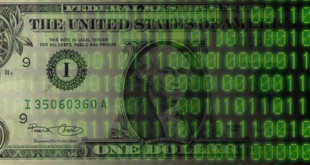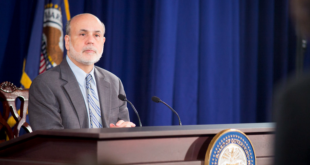During the past few weeks, Donald Trump has been releasing some of his proposals if he were to win the election in 2024. While many of his positions pose great danger to personal liberty, such as his plan to “end crime and keep Americans safe,” his proposals on tariffs are up there in terms of ignorance. In a video posted on February 27, Donald Trump released his plan to “end our reliance on China.” In the short video, Trump claims that his plan would increase...
Read More »The Fed’s Huge Monetary Overhang Keeps Job Totals Up as Real Wages Fall
The current job market strength partly reflects the ongoing monetary overhang from years of breakneck growth in money-supply inflation. The $6 trillion in money that was newly created since 2020 is still very much a factor. Original Article: "The Fed's Huge Monetary Overhang Keeps Job Totals Up as Real Wages Fall" This Audio Mises Wire is generously sponsored by Christopher Condon. [embedded content]...
Read More »The Fed’s Malfeasance after SVB
This past weekend saw extraordinary actions by the Fed to address the meltdown of Silicon Valley Bank. Did the central bank break the law by effectively authorizing unsecured loans to banks based on the face value—rather than significantly lower market value—of those banks' Treasury holdings? Bob's study guide to A Theory of Money and Credit: Mises.org/HAP387a Jeff on the Fed as the ultimate bank: Mises.org/HAP387b [embedded content] [embedded...
Read More »The Balfour Declaration
Teaching high schoolers economics means teaching Austrian principles. Original Article: "The Balfour Declaration" This Audio Mises Wire is generously sponsored by Christopher Condon. [embedded content] Tags: Featured,newsletter
Read More »Central Bank Digital Currencies Would Bring Hyperinflation
There are many excuses often used to explain inflation. However, the fact is that there is no such thing as “cost push inflation” or “commodity inflation.” Inflation is not an increase in prices, it is the destruction of the purchasing power of the currency. Cost-push inflation is more units of currency going to relatively scarce real assets. The same can be said about all other, from commodities to demand and my favorite, “supply chain disruption.” More units of...
Read More »Bank Failures: Runs and Funds
SVB Bank and Signature Bank failed this week and were bailed out. Mark explains why the banks failed and why it was bound to happen. The minor issue is that the total FDIC bailout fund is actually smaller than either one of the banks. Be sure to follow Minor Issues at Mises.org/MinorIssues. [embedded content] Tags:...
Read More »How the Fed’s 2008 Mortgage Experiment Fueled Today’s Housing Crisis
How should Congress assess the Federal Reserve’s track record as an investor in residential mortgage-backed securities (MBS)? Regardless of Fed spin, it merits a failing grade. The Fed’s COVID-era intervention in the mortgage markets fueled the second real estate bubble of the 21st century. The bubble ended when the Fed stopped purchasing MBS and raised rates to fight inflation. While time will tell whether recent increases in home prices are reversed, the end of the...
Read More »Anatomy of the Bank Run
[This article is featured in chapter 79 of Making Economic Sense by Murray Rothbard and originally appeared in the September, 1985 edition of The Free Market] It was a scene familiar to any nostalgia buff: all-night lines waiting for the banks (first in Ohio, then in Maryland) to open; pompous but mendacious assurances by the bankers that all is well and that the people should go home; a stubborn insistence by depositors to get their money out; and the consequent...
Read More »Influencers and Subjective Value: They Have Something to Teach Us
In 2022, investments into the creator economy surged to $5 billion. The term creator refers to people who generate value from intellectual output or artistic work. However, a new form of creative has emerged known as the “influencer.” Influencers are online personalities who, through their charisma, cultivate a loyal fanbase. Due to their reach, brands employ influencers to market their products and services. Influencer marketing has proven to be a lucrative venture,...
Read More »Ready for Retirement? Fewer and Fewer Americans Are Saving for That Time
Because of inflation and a lack of a savings ethic, Americans are less prepared for retirement than ever. The numbers are discouraging. Original Article: "Ready for Retirement? Fewer and Fewer Americans Are Saving for That Time" This Audio Mises Wire is generously sponsored by Christopher Condon. [embedded content]...
Read More » Swiss Economicblogs.org
Swiss Economicblogs.org




